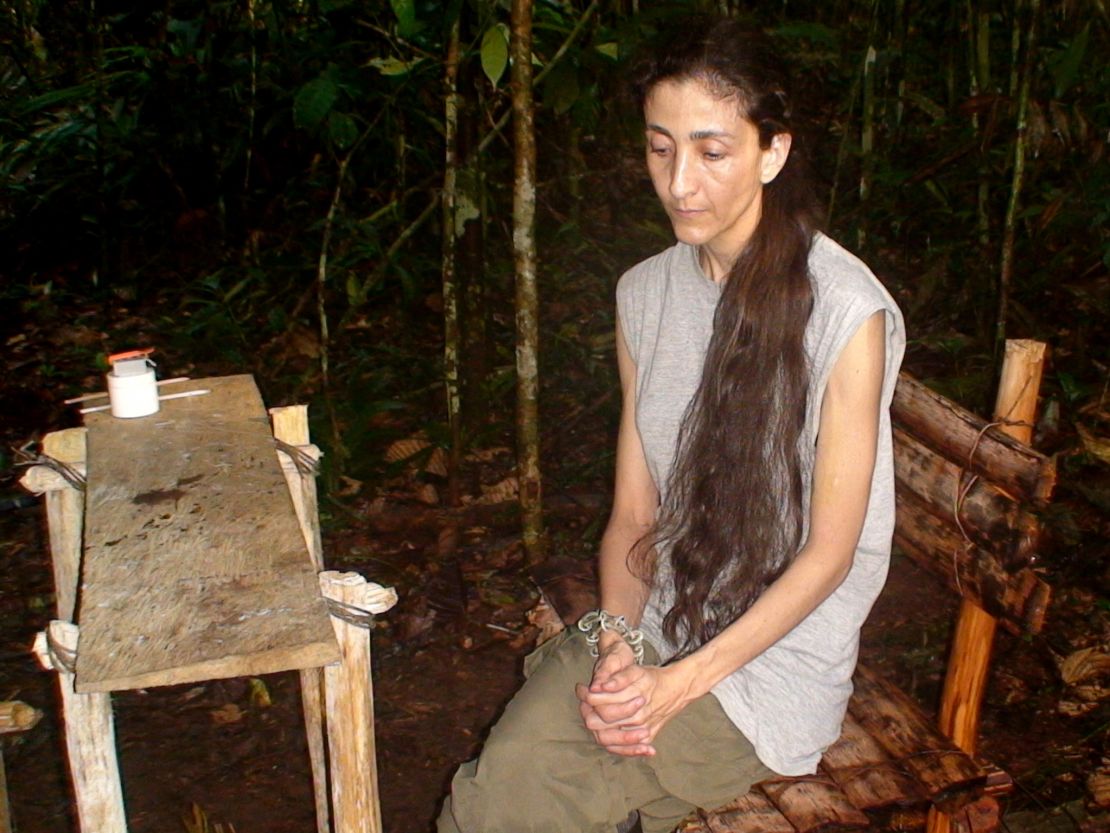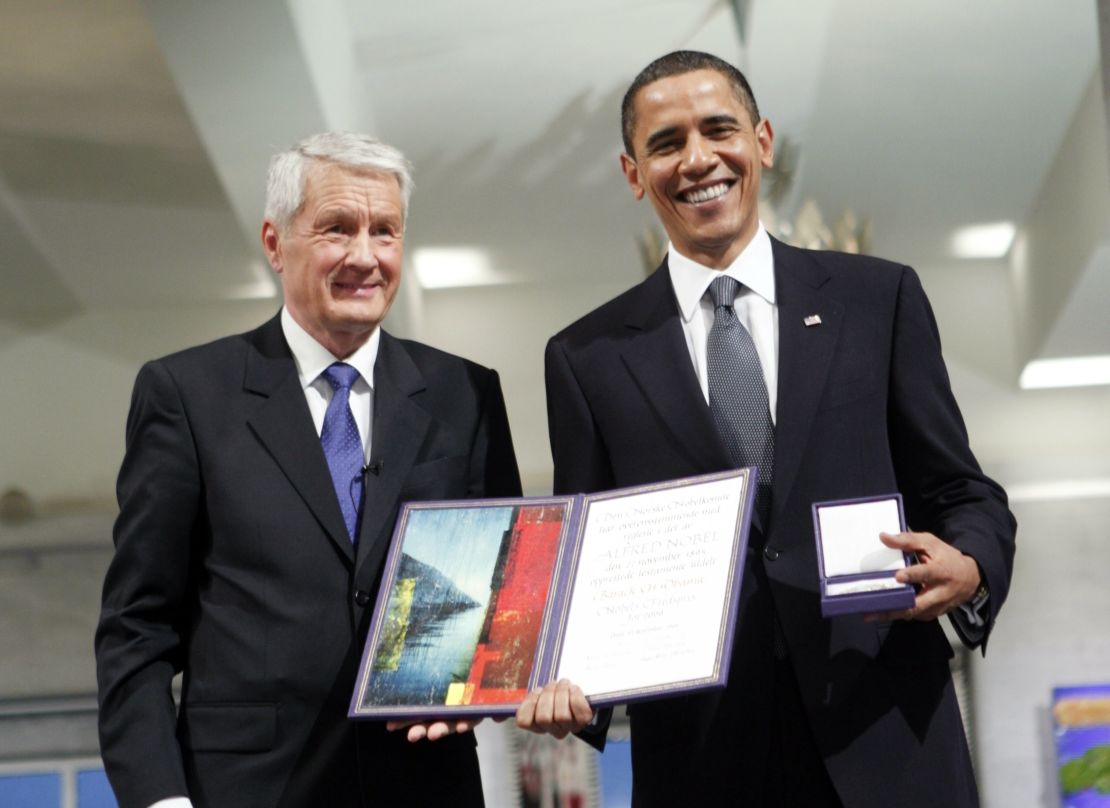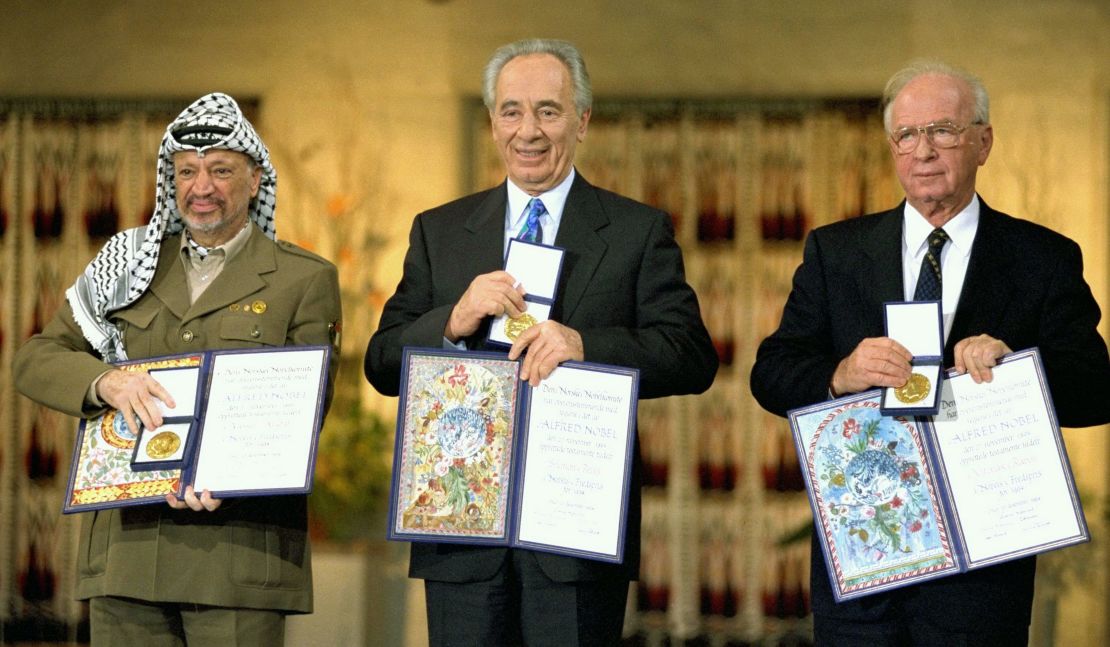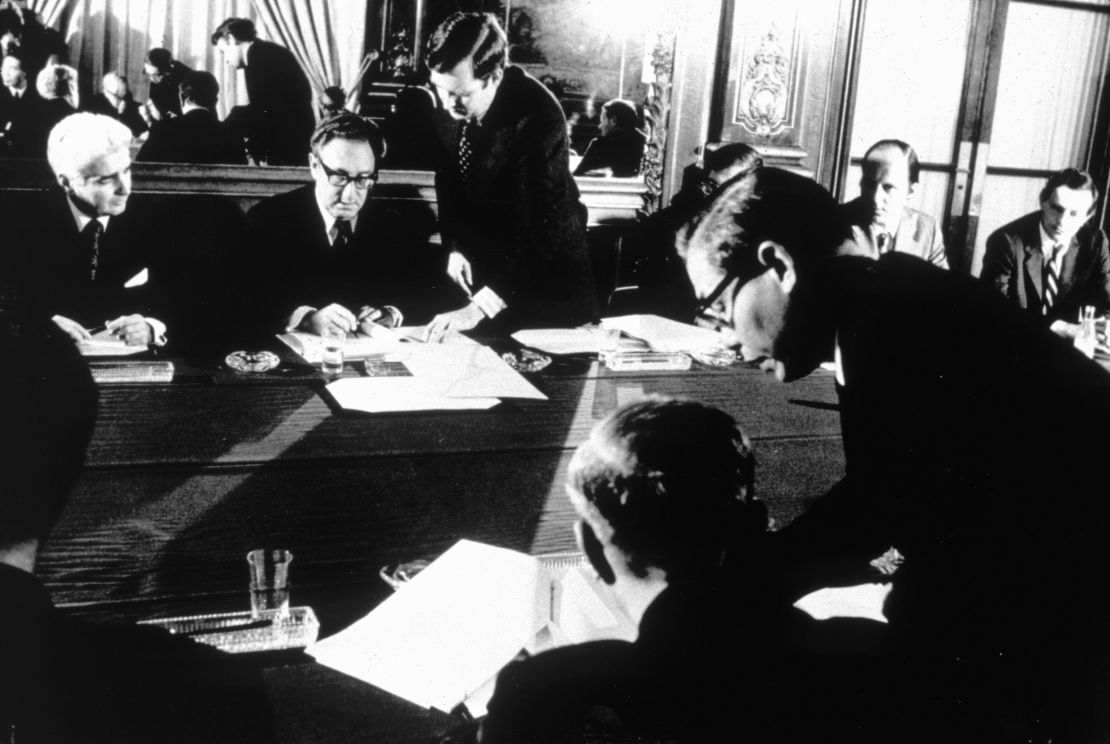Story highlights
Colombian president wins prize less than a week after peace deal rejected
Had spent years negotiating deal with FARC rebels before it went to public vote
The 2016 Nobel Peace Prize has been awarded to Colombian President Juan Manuel Santos for his efforts to end his country’s long-running civil war with FARC rebels.
The Nobel committee made the announcement in Oslo on Friday, five days after voters in Colombia narrowly rejected a peace deal that Santos’ government had spent years negotiating.
In its citation, the committee said it had awarded Santos the prize for “his resolute efforts to bring the country’s more than 50-year-long civil war to an end, a war that has cost the lives of at least 220,000 Colombians and displaced close to six million people.”
It added: “The award should also be seen as a tribute to the Colombian people who, despite great hardships and abuses, have not given up hope of a just peace, and to all the parties who have contributed to the peace process.”
Santos said he accepted the prize “on behalf of all Colombians, especially the millions of victims of this conflict which we have suffered for more than 50 years.”
Peace prize, but no peace deal
Santos’ administration spent four years negotiating a deal with the former guerrilla group FARC that would have ended five decades of war.
The rejection of the deal by Colombians last weekend was a major blow for Santos, whose popularity has suffered over his support of the deal. Critics of the deal said it didn’t do enough to punish the rebels.
Now it seems the rebels and the Colombian government, facilitated by international leaders, will have to go back to the drawing board to reimagine a peace that is acceptable to victims of murder, extortion and kidnapping.
The Nobel Committee said the outcome “was not what President Santos wanted,” but they acknowledged that he was “instrumental in ensuring that Colombian voters were able to voice their opinion concerning the peace accord in a referendum.”
FARC rebel leader Timoleon “Timonchenko” Jimenez also congratulated President Santos in a tweet on Friday.
What next for the deal?
The ceasefire signed between the government and FARC rebels will expire at the end of October, Santos announced on Tuesday.
He has now tasked a three-person panel with reworking the deal.
“I hope that we can advance in our accords and dialogues so that we can settle on the arrangements, and the agreements that allow us to put in place a solution to this conflict,” Santos said in a televised statement.
Who is Juan Manuel Santos?
Born in Bogota in 1951, the former Navy cadet pursued degrees in Britain and America before returning to Colombia to work as a journalist.
In 2005 he helped found the Social Party of National Unity (Partido de la U), Colombia’s largest political party.
Santos has been Colombia’s president since 2010.
“Perfect peace is impossible, but a good peace, like the one we just negotiated, that’s the best thing for every Colombian and for the world,” Santos told CNN in August ahead of the referendum.
“Because always to have peace is much better to have war.”
A brief history of the war
The devastating war began in 1964 after the success of the Cuban revolution, with the rebels wanting to use force to redistribute wealth.
In the decades since, the armed group has seized territory, attacked government forces and interfered with political life through high-profile kidnappings.
The rebels hijacked a commercial airliner to kidnap a senator in 2002, one of at least three passenger plane hijackings in the early part of this century.

Among the group’s most notorious feats was the 2002 capture of presidential candidate Ingrid Betancourt, who was held deep in the jungle for six years before a Colombian military operation rescued her.
FARC also turned to the drug trade, making millions from trafficking in cocaine. Both the United States and European Union designated it as a terrorist group.
The insurgency has displaced as many as 5 million people – more than one out of every 10 Colombians.
Who else was in the running for Nobel?
The names of nominees are kept secret for 50 years.
However that doesn’t stop people making their nominations public, and some of this year’s rumored nominees were Syria’s search and rescue group the White Helmets, German Chancellor Angela Merkel, Pope Francis and Greek Islanders.
This year there were 376 candidates for the peace prize, the highest number ever.
The person doing the nominating has to be either a government official, a member of the international court, a university professor, a past laureate or a former or present member of the Norwegian Nobel Committee.
Who won last year?
Many had placed their bets on Pope Francis or German Chancellor Angela Merkel scooping the 2015 prize.
But in the end, the award went to the Tunisian National Dialogue Quartet – a group dedicated to fostering dialogue between disparate parts of Tunisian society, particularly in the wake of the 2011 Jasmine Revolution.
Controversial winners

Many were shocked at the speed with which US President Barack Obama won the prize in 2009 – less than a year after taking office, and with the deadline for nominations just 12 days after he became leader.
“He hasn’t had time to do anything yet,” said 1983 winner – anti-communist Polish leader Lech Walsea.
Meanwhile, 2001 laureate and former UN secretary general Kofi Annan called the choice “unexpected but inspired.”

One Nobel Committee member resigned in protest when Palestine Liberation Organization Chairman Yasser Arafat, Israeli Prime Minister Yitzhak Rabin and Foreign Minister Shimon Peres jointly won the award in 1994 for their roles in negotiations that culminated in the Oslo Accords.

Two other committee members also quit for the first time in the prize’s history, after US Secretary of State Henry Kissinger and Vietnamese revolutionary Gen. Le Duc Tho won in 1973 for negotiating a ceasefire (which turned out to be short-lived) in the Vietnam War.
However Le Duc Tho turned down the award – the only peace prize winner ever to do so.
Youngest winner
Pakistani schoolgirl Malala Yousafzay was 17 years old when she won the award in 2014, alongside Indian activist Kailash Satyarthi, for their work promoting children’s education.
Yousafzai came to global attention after she was shot in the head by the Taliban in 2012 for her efforts to promote girls’ education in Pakistan.
She is one of just 16 women to win the Nobel Peace prize – out of a total 103 past winners.
CNN’s Rachel Clarke and Nick Thompson contributed to this report









































































































